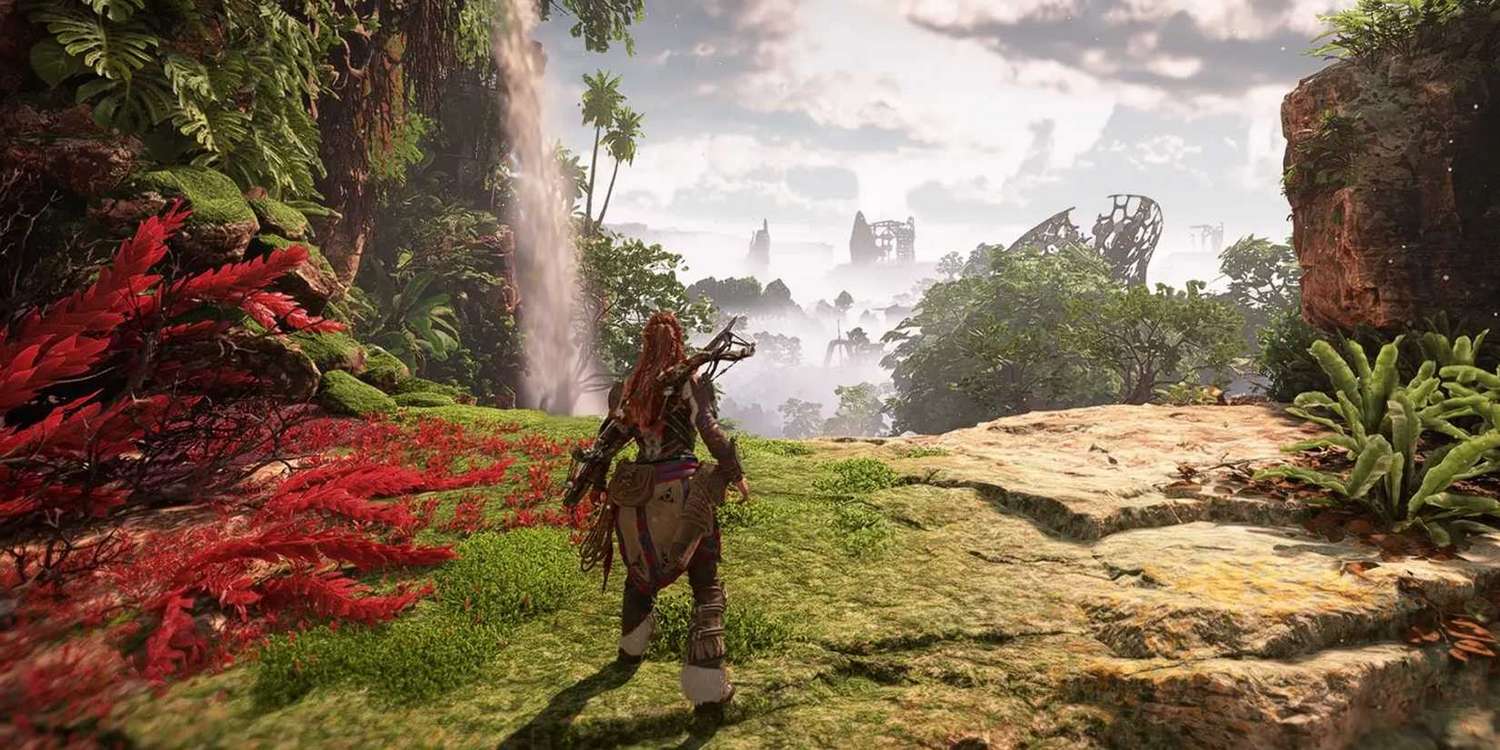Sony Escalates Horizon IP Battle: Preliminary Injunction Sought Against Tencent Over ‘Slavish Clone’ Light of Motiram
Popular Now
 R.E.P.O
R.E.P.O
 Grand Theft Auto V
Grand Theft Auto V
 Free Fire
Free Fire
 God of War Ragnarök
God of War Ragnarök
 Black Myth: Wukong
Black Myth: Wukong
 CarX Street
CarX Street
 League of Legends
League of Legends
 Counter-Strike 2
Counter-Strike 2
 Auto X Drift Racing 3
Auto X Drift Racing 3
 BeamNG.drive
BeamNG.drive 
Sony Interactive Entertainment (SIE) has dramatically escalated its legal conflict with Chinese technology and gaming behemoth Tencent, filing a motion for a preliminary injunction in a U.S. District Court. The action seeks to immediately bar Tencent from continuing to promote, and eventually release, its upcoming open-world survival game, Light of Motiram, which Sony labels a “slavish clone” of its globally successful Horizon franchise, specifically citing copyright and trademark infringement of Horizon Zero Dawn and Horizon Forbidden West.
This high-stakes legal maneuver follows Sony’s initial copyright and trademark lawsuit filed in late July 2025 and is a direct response to Tencent’s motion to dismiss the case, in which the Chinese corporation argued that the similarities merely fall under “well-trodden tropes” and “genre conventions” of post-apocalyptic settings and open-world gameplay. Sony’s filing, however, insists that the damage to the Horizon brand—a PlayStation tentpole—is already being done through pre-release promotion and market confusion.
The Core of the Dispute: More Than Just Genre Tropes
The legal documents filed by SIE outline a number of alleged, specific infringements that go far beyond superficial genre similarities. The gaming giant contends that Tencent has not only copied the core concept but also numerous distinctive, protected elements, attempting to “trade off of the Aloy Character Mark’s goodwill and reputation.”
- The Protagonist: SIE is seeking to bar the use of Light of Motiram’s main character, a “fierce tribal warrior huntress characterized by fiery red hair,” which they argue is virtually indistinguishable from Aloy, the iconic protagonist of the Horizon series.
- Aesthetic and Narrative Elements: The injunction targets the game’s overall look, including the distinctive designs of robot animal machines and tribal warrior aesthetics, as well as storyline elements and the setting of a technologically advanced post-apocalyptic world.
- Musical Infringement: In a particularly pointed accusation, Sony alleges that Tencent hired a composer who previously worked on the Horizon Forbidden West soundtrack and used a trailer melody that is virtually identical to two key compositions from the Horizon Zero Dawn OST.
- Deliberate Copying: Court filings indicate Sony had previously rejected a proposal from Tencent to collaborate on a new Horizon game, which Sony is now using as evidence that Tencent’s subsequent development of Light of Motiram was a knowing and deliberate act of intellectual property theft.
 Sony Blasts Tencent’s Defense as ‘Nonsense’
Sony Blasts Tencent’s Defense as ‘Nonsense’
In response to Tencent’s motion to dismiss, which suggested that the lawsuit was premature since Light of Motiram has a projected release date as late as Q4 2027, Sony’s legal team did not mince words. They labeled Tencent’s defense as “nonsense,” arguing that the current pre-release marketing and public perception have already caused significant, irreparable harm.
“The damage is done,” a statement in the filing reads, “and it continues.” Sony points to extensive media coverage and countless gamer comments that have unanimously described Light of Motiram as a “major Horizon rip off,” “an obvious knock off,” and a “copycat” with a main character that “resembles Aloy to a tee.” SIE argues this pervasive public confusion directly undermines the commercial value and expansion plans for the Horizon franchise, including upcoming ventures like the recently announced live-action movie adaptation (Source: Games Fray, IGN).
Corporate Complexity and the ‘Shell Game’ Accusation
A secondary but crucial element of Sony’s counter-filing addresses Tencent’s attempt to deflect liability. Tencent had argued that the lawsuit targeted the wrong entities, claiming that the developing studio, Polaris Quest / Aurora Studios, operates under Tencent Technology (Shanghai) Co., not the primary Tencent Holdings Ltd. and Tencent America entities named in the suit.
Sony dismissed this as a corporate “shell game,” insisting that Tencent Holdings’ own business description explicitly states its Games division “own[s] Aurora Studios.” Furthermore, the use of the powerful “Tencent” brand to advertise Light of Motiram is central to Sony’s trademark infringement claim, as it leverages Tencent’s massive global reputation, a strategy that Sony asserts is designed to mislead consumers and shield the subsidiary from accountability.
 The Preliminary Injunction’s Stakes and What It Means for the Game Industry
The Preliminary Injunction’s Stakes and What It Means for the Game Industry
The court’s decision on the preliminary injunction will be a significant moment in intellectual property law for the video game industry. If granted, it would force Tencent to:
- Halt all promotional material for Light of Motiram.
- Redesign the protagonist to eliminate the alleged resemblance to Aloy.
- Bar the use of other infringing visuals or musical elements.
Tencent’s primary counter-argument remains that granting an injunction years before the scheduled release date would be unprecedented and unnecessary, as the immediate injury prerequisite for a preliminary injunction cannot be met. However, Sony’s compelling argument centers on the principle that the loss of control over a major, high-value intellectual property and the creation of consumer confusion is, in itself, irreparable harm that justifies immediate judicial intervention.
The ruling is highly anticipated, as it will set a critical precedent on the boundaries of “genre conventions” versus outright copyright infringement in the fiercely competitive AAA game development and mobile gaming markets, particularly between global powerhouses with billions in revenue at stake. The outcome will undoubtedly impact how developers approach creative inspiration and IP defense moving forward.








 Sony Blasts Tencent’s Defense as ‘Nonsense’
Sony Blasts Tencent’s Defense as ‘Nonsense’ The Preliminary Injunction’s Stakes and What It Means for the Game Industry
The Preliminary Injunction’s Stakes and What It Means for the Game Industry